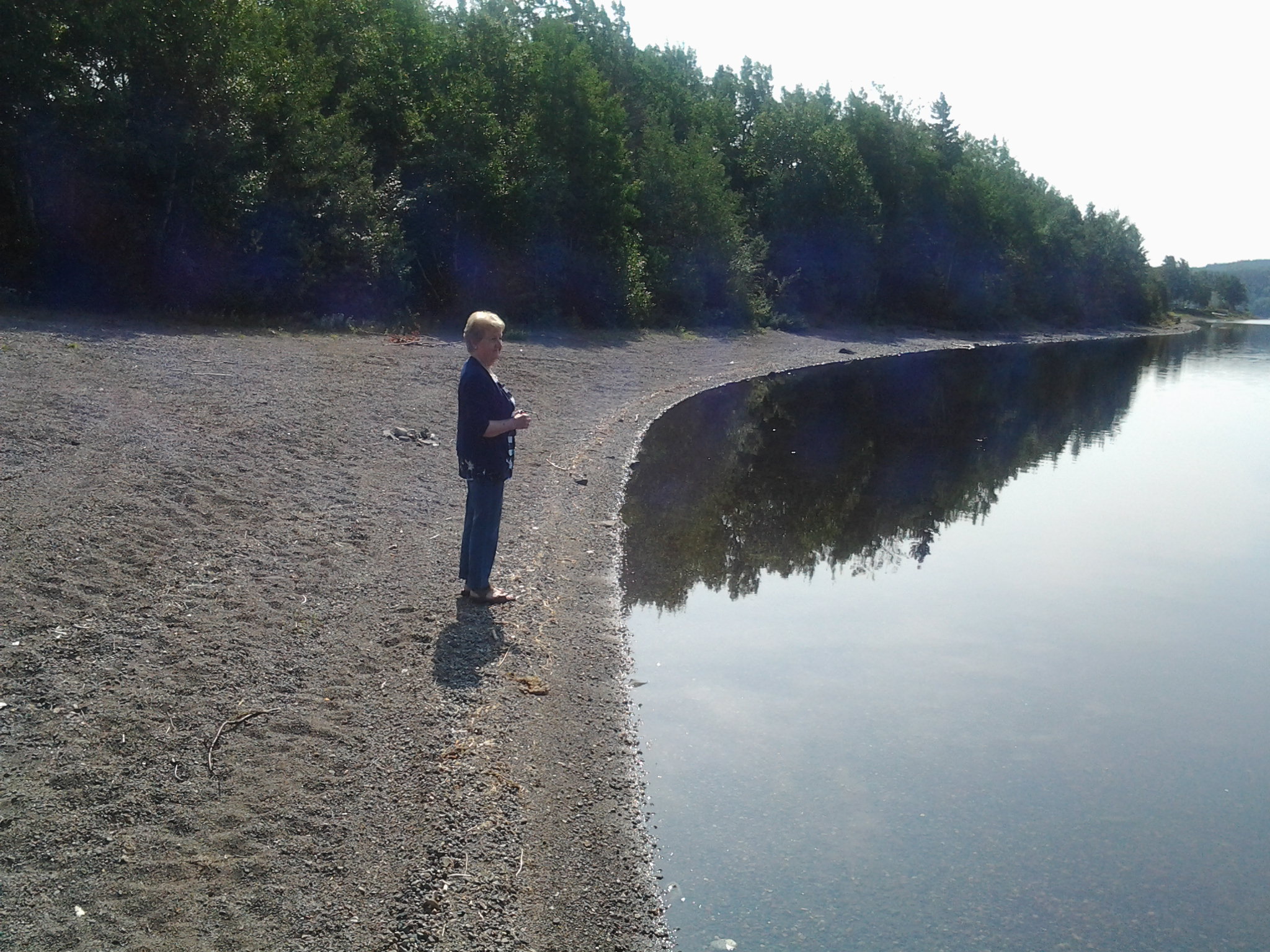
There Follows the reading of the Parable of ‘The Prodigal Son’ ( ABOVE), an audio meditation based on the Old Testament Text: Psalm 7:1 O Lord my God, I take refuge in You; save and deliver me from all who pursue me.
ON THE RUN
A Prayer To Follow This Meditation
Searching God;
You hold steadfast in Your belief in us.
Day and night, night and day You keep watching the road we would travel on the way home.
You know, that love will finally produce the scene which You so earnestly wait to see! Your love never fails. The triumph of Your love is assured.
Many have already committed themselves to join You in Your unending vigil. Yet there is room for millions more to help. The task of making a straight highway to our God, always requires that we stay close to You. Help us to sight, even at a great distance, someone wandering homeward, who needs our words of encouragement and the assurance of our companionship.
Shield our eyes from the glare of complacency, and the self-absorption that results in nearsightedness.
Forgive us when we let the enticements of the far country sneak even through the church doors from where with You we are supposed to keep that vigil.
It is the Presence of the Risen Christ who equips us for service. For His sake and our own, call a halt to our running around in circles, Help us to find our refuge in the Lord. Then tomorrow we will see a new day dawning. Through Jesus Christ our Lord. Amen.
THE LORD BLESS THEE AND KEEP THEE
TRANSCRIPT OF ON THE RUN
(To gain a further understanding of the meditation that follows, a reading of the suggested scriptures will be most helpful. Also, a study of the Editorial Notes at the end of the post may prove to be beneficial)
Psalm 7: 1
“LORD my God, I take refuge in you; save and deliver me from all who pursue me,” (1)
A person on the run creates an immediate, and intriguing spectacle, and even more so if a pursuer is made visible in the scene. Then, if more than one spectator is observing the scene, the storyline may change and develop in many different directions simultaneously. This scenario usually presumes an assumption of guilt, but the truth of the matter is, nobody knows. Ordinarily, we would conclude that the people who know the reason for the activity in the scene are the one at the front of the pack, and those in pursuit. The Biblical narrative under present consideration, however, provides for an entirely different review: here, David, the one pursued is uncertain why this action is happening. There is a conscious uncertainty that is making it impossible for him to claim either innocence or guilt. A guilty conscience is a torturing experience. But to be uncertain of innocence or guilt is destructive. It is difficult to imagine the burden of loneliness that David is being forced to carry under such circumstances.
When David was a young man, he was in the employ of Saul, King of Israel. As David became more well known, he became the most popular personage in the land. His fame quickly spread. Consequently, his popularity stirred the wrath of Saul who avails himself of every opportunity to exterminate David. Cush, a member of the tribe of Benjamin, invents a false tale, that it is David who is plotting to kill King Saul. When Cush reports this malicious plot to Saul, the subsequent drama which unfolds finds David fleeing and Cush, a Benjamite, in hot pursuit.
While our situations are not of the same dramatic vein as David’s, it is by no means unknown to us that individuals often are ‘ on the run.’ Sometimes, both the pursued and the pursuer are known to each other, as is the case between David and Saul and Cush. That situation is often wrought with unrelenting fear, nervous surveillance and possibly a heart-wrenching regret by the pursued.
Quite often the pursuit is between a person and an invisible pursuer. It is also this fact we must consider in the story of David. While David knows his pursuers well, he is also hunted by an unclear conscience: ” Am I guilty or am I not guilty? Did I perpetrate this felony of which I stand accused?
Where does the debate between ‘right’ and ‘wrong’ behaviour originate in the first place”?
To feel the urge to define ‘ right’ and ‘wrong’, ‘guilt or innocence is, to begin with, a belief in a divine being, One who is omniscient ( all-knowing). Wherever one wrestles with feelings of ” good or bad,” ” right or wrong,” ” guilt or innocence,” it is indicative of God being already on the scene. Unless there is a God by whom ‘right’ and ‘wrong’ can be reliably assessed, moral judgments can be no more than opinions influenced by upbringing, training, and propaganda. (2)
Unlike the many people who thereby conclude that ‘conscience ‘ is synonymous with God, David provides us with a more dynamic, and I believe, a much healthier understanding of God than that. It is true that God indwells humankind, yet God is not dependent upon human nature when it comes to a fuller revelation of Himself to the world. God can and does act independently of human understanding and belief. The poet, Frederick William Faber expresses it well:
“There’s a wideness in God’s mercy,
Like the wideness of the sea;
There’s kindness in his justice,
Which is more than liberty.
For the love of God is broader
Than the measures of man’s mind;
And the heart of the Eternal
Is most wonderfully kind.” (3)
Because it is not within a person’s intellectual ability to understand Jesus’ feeding of the five thousand; or to understand Jesus’ walking upon the water, solely from a reference to our exclusive belief in natural law, it is somewhat presumptuous to conclude that these events are beyond the realm of possibility. Our Biblical knowledge of God must never be adjusted to avoid offending our poor atrophying brain cells. The belief in the everlasting Presence of God must never contain the slightest hint that His Presence depends upon suitable human behaviour.
David, the frightened, guilt-stricken, remorseful individual that he is, seeks to enter into close quarters with God. Without any empirical evidence of personal guilt or innocence, he surrenders himself to the investigation of Who God Is and as a consequence arrives at profound self-knowledge.
‘The Hound Of Heaven’ is the deeply moving autobiography of the poet, Francis Thompson.
As the hound follows the hare, never ceasing in its running, ever drawing nearer ‘ with unhurrying chase, And unperturbed pace, so does God follow the fleeing soul by His Grace. Thompson makes every effort to avoid God. He hides in art, in science, and in deeply demanding emotional experiences. But the unrelenting chase continues, with the inevitable encounter approaching closer and closer. And then,
“That Voice is round me like a bursting sea;” he confesses,
” Halts by me that footfall:
Is my gloom, after all,
Shade of His hand, outstretched caressingly?”
” Ah, fondest, blindest, weakest,” God responds,
” I am He whom thou sleekest,
Thou dravest love from thee, who dravest Me.” (3)
Is “The Hound Of Heaven” hidden somewhere in your restlessness, or in the never-ending marathon in which you are engaged? ‘Is your gloom, after all, the shade of His hand outstretched caressingly’? That was the learned experience of David that permits him to pray: “Lord, my God, I take refuge in You.” And is that not at the very center of the story that Jesus once told of a “Prodigal Son, who having been on the run for years, finally “came to his senses ” I will arise and go to my father,” he decides I will tell him: father I have sinned against Heaven and I am no more worthy to be called your son. Make me one of your hired servants.” And when he is still a great way off his father sees him. He runs out to meet him. He throws his arms around him and kisses him. Thereupon the son begins his halting soliloquy: ” Father, I have sinned against Heaven, and I am not worthy……” The father interrupts his rehearsed soliloquy and addresses his servants. Bring the best robe and put it on him. Put a ring on his finger and sandals on his feet” Bring the fatted calf and kill it and let us celebrate, for this my son was dead and is alive again; he was lost and is found.” Amen.
A Prayer To Follow This Meditation
Searching God;
You hold steadfast in Your belief in us.
Day and night, night and day You keep watching the road we would travel on the way home.
You know, that love will finally produce the scene which You so earnestly wait to see! Your love never fails. The triumph of Your love is assured.
Many have already committed themselves to join You in Your unending vigil. Yet there is room for millions more to help. The task of making a straight highway to our God, always requires that we stay close to You. Help us to spot, even at a great distance, someone wandering homeward, who needs our words of encouragement and the assurance of our companionship.
Shield our eyes from the glare of complacency, and the self-absorption that results in nearsightedness.
Forgive us when we let the enticements of the far country sneak even through the church doors, from where with You we are commissioned to keep that vigil.
It is the Presence of the Risen Christ who equips us for service. For His sake and our own, call a halt to our running around in circles. Help us to find our refuge in You. Then tomorrow we will see a new day dawning. Through Jesus Christ our Lord. Amen.
EDITORIAL NOTES
1. Here and throughout the text of this meditation, the quotations from the Holy Bible are from the New International Translation, Unless otherwise noted in the text.
2. An indirect reference to the thought expressed by J.B.
Phillips in his book: Your God Is Too Small.
3.William Faber. There’s A wideness In God’s Mercy
Fredhttps://believersportal.com/theres-a-wideness-in-gods-mercy-hymn-lyrics/erick
4. Francis Thompson. THE HOUND OF HEAVEN.
https://www.easyenglish.bible/psalms/psalm007-taw.htm
https://en.wikipedia.org/wiki/The_Hound_of_Heaven
5. Photo : Valley Pond, Newfoundland



